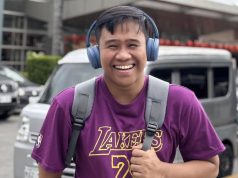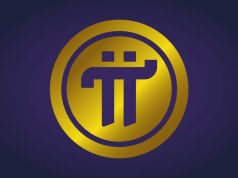Facebook has introduced it’s new tools and tips to it’s 54 million strong Filipino community for an even more safe and secured Facebook experience.
Mia Garlick, Director of Safety, Facebook APAC, said, “From text messages to video chat – the way we connect with each other has significantly changed over time. The trend is clear – connecting becomes faster, more efficient, more immersive. At Facebook, we’re helping 54 million people in the Philippines connect and share with their family and friends and the things that matter to them. These people will only come to Facebook if it’s a safe place to connect and share with the people they care about. That’s why we invest in technology, controls, Community Standards and education to help keep people and their information safe and secure. These controls and technology are powerful, but only when people know about them. We are constantly listening and learning, and are committed to developing resources with local safety partners and experts to help keep our community in the Philippines safe.”
Facebook’s new Safety Center is now available in over 50 languages, including Tagalog, is mobile friendly, and includes step-by-step videos to help people stay in control and feel safe being themselves.
This update also brings Facebook’s Bullying Prevention Hub to everyone on Facebook. The Hub is a resource for teens, parents and educators seeking guidance on how to prevent and address bullying. Developed with the Yale Center for Emotional Intelligence in 2013, Facebook is pleased to be working with nearly 60 partners around the world to make the Bullying Prevention Hub more widely available.
Facebook invests in technology, controls and education to help keep people and their information safe and secure
1Powerful Technology
Privacy and security is built into every Facebook product and design. Facebook’s security systems run in the background millions of times per second to catch threats and remove them before they ever reach people. Before any object (like a status update or a photo) loads on Facebook, Facebook runs a privacy check to make sure a person is allowed to see/in the audience for that object. Facebook completes around 80 trillion object privacy checks each day (at peak that’s about 70 billion every minute).Using Facebook also means that people’s communications are protected by strong encryption.
2Extensive Controls
Every time people share something – a post or a photo or a link – they can choose exactly who can see it.
Using Activity Log, people can change the audience for anything they’ve shared on Facebook, see everything they’ve been tagged in, and delete anything that is no longer wanted. People can block anyone they don’t want to interact with. Facebook’s Privacy and Security Checkups walks people through a few quick steps to help ensure that only selected people can see posts and to help people enhance account security.
People can also enable login approvals, which means entering a code along with one’s password when logging in from a device or browser for the first time.
Facebook is the only company to use the built-in strength of friend connections to enhance security. For example, people can pick a few trusted friends to help them get back into their account if they ever lose access for some reason—if that happens, Facebook will send each of them a short code that they can use to get back in control of their friend’s account.
Ad preferences are available for every ad on Facebook — people can just click “Why am I seeing this ad?” It explains why that person is seeing particular ads and lets them remove or add interests that Facebook uses to show people ads.
Facebook also offers a range of Page moderation tools, which allow Page owners to choose how people engage with their Page. These include comment ranking, profanity filters and word blocks. Page owners can also hide comments, which means the person who posted it and their friends still see the post but others on the Page don’t. Page owners can also chose to ban certain people if they prove to be repeat offenders of their Pages guidelines.
Facebook also offers people the option of establishing a legacy contact—a family member or friend who can manage their account when they pass away. Once someone lets Facebook know that a person has passed away, we will memorialize the account and the legacy contact will be able to write a post to display at the top of the memorialized Timeline; respond to new friend requests from family members and friends who were not yet connected on Facebook; update the profile picture and cover photo.
3Community Standards
The conversations that happen on Facebook reflect the diversity of 1.8 billion people. That’s why Facebook has a set of Community Standards that are designed to create an environment where people feel motivated and empowered to treat each other with empathy and respect.
Not all disagreeable or disturbing content violates Facebook’s Community Standards. By blocking, unfollowing or unfriending the person or Page that posted the content, what is seen on Facebook can be controlled.
Facebook’s authentic names policy helps discourage bad behavior. When people use their authentic names, they are less likely to participate in bullying, impersonation and scams.
4Easy Reporting
People can easily report content they believe might violate Facebook’s Community Standards using the report links on every Page, profile or piece of content.
Global teams work 24 hours a day 7 days a week to review things people report and remove things that violate Facebook’s Community Standards.
In difficult situations where someone sees a friend struggling with suicidal thoughts, people can alert the Facebook team who review these reports 24/7.
Support inbox: Facebook’s Support Inbox gives people updates about things they’ve reported and includes Help Center replies.
5Education
These controls are powerful, but only when people know about them. That’s why Facebook helps people stay informed about their controls and choices – from the day they sign up for Facebook and beyond.
Facebook’s Safety Center provides a whole host of resources, including step-by-step videos and guidance for parents, teens and educators, on how to stay safe. The new Family Safety Center includes a series of videos in Tagalog.
Facebook periodically reminds people about their privacy and security settings, and how to run Privacy and Security Checkups.
Facebook works with safety experts all over the world to develop safety programs that resonate best locally.
First Draft Coalition: In September 2016, Facebook joined the First Draft Coalition Partner Network. The network consists of over 30 news and technology companies is designed to raise awareness around the use of newsworthy information and eyewitness media sourced from the social web and tackle issues such as fake news to improve the quality of information online. Media in the Philippines are able to join First Draft. More here: https://firstdraftnews.com/
Facebook’s online training for journalists: In October, Facebook launched Facebook’s online training for journalists, free e-learning courses inspired by conversations with editors and journalists across the globe who asked for a single destination where they can learn about Facebook’s products, tools and services for use in their work.








